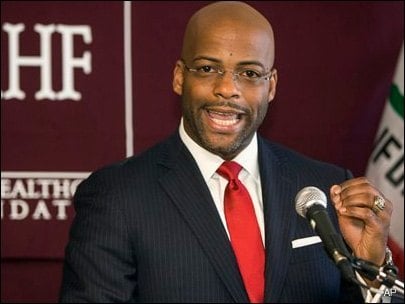California Online Poker in 2015: A Look at the Golden State’s Politics, Factions, and Marketing
Posted on: December 28, 2015, 09:00h.
Last updated on: November 8, 2015, 08:54h.

The possibility for California online poker in 2015 began with a sense of optimism for regulation in the Golden State.
Despite the numerous divisions of the state’s various gambling stakeholders, whose inability to see eye-to-eye had led to an impasse for the previous year’s legislation, the feeling was that this was the year it could all finally come together.
Perhaps sensing the challenges ahead, Assemblyman Mike Gatto (D-Los Angeles) got in there early, introducing a bill in December 2014, hopefully to give squabbling factions the necessary time to agree on mutually acceptable language.
With that move, he felt that online poker had an even chance of passing this year in his state. His optimism may have been too high though.
High on the list of divisive issues was PokerStars. As the year began, a large coalition of tribal operators, which would become loosely known as the Pechanga coalition after its main agitator, was adamant that the online poker giant would not enter the market.
Tribal Wars
Opposing them were the Morongo Band of Mission Indians and an alliance of the state’s biggest card clubs, including the Commerce, Hawaiian Gardens, and the Bicycle, who had inked a deal with PokerStars to offer online poker in a regulated landscape.
The racetracks, meanwhile, also staked their claim to a piece of the Internet poker market, a fact that annoyed the Pechanga Coalition, perhaps even more than PokerStars’ ambitions.
It was into this climate that Reggie Jones-Sawyer introduced his own draft legislation, which had toned down its “bad actor” language from last year’s effort. The 2014 Jones-Sawyer bill precluded PokerStars from entering the market because of its history of offering bets to Americans post-UIGEA.
This bill proposed to be more inclusive and was much cagier on the PokerStars question, hoping to appease all parties. Hopes were indeed raised when the San Manuel Band of Mission Indians defected to the Morongo faction.
But the Pechanga Coalition, which had supported the previous year’s Jones-Sawyer bill, wasted no time in slamming the new one. It was “fatally flawed,” it said, and “not sufficient to protect the integrity of the California market.”
Talk But No Walk
At the Western Indian Gaming Conference in February, there was much talk from both sides of the urgent need for compromise, but none was forthcoming.
Once again, hopes were raised by the emergence of a new bill with friends in high places. State Senator Isadore Hall (D-South Bay) and Assembly Member Adam Gray (D- 21st District) both chair Governmental Organization committees of their respective chambers, and their bill soon emerged as the frontrunner.
But the Hall/Gray bill contained little actual language. Instead, it was essentially a shell bill designed to act as a vehicle to carry the issue through the legislature, to be filled in in the event that consensus could be reached.
But that was not to be the case in 2015. If anything, divisions grew deeper when the Viejas Band of Kumayaay Indians paid for a series of radio ad spots, denouncing PokerStars and comparing the company to “Internet scam artists and con men.”
Charm Offensive
Meanwhile, in the absence of any legislative progress, PokerStars launched a grassroots charm offensive, establishing the Californians for Responsible iPoker advocacy group, and visiting card rooms across the states with its team of high-profile pros to educate the public about the need for regulation.
As a fiscal issue, any online poker bill in California would need a two-thirds majority vote in the legislature to pass, which is why the consensus of the stakeholders is crucial. However, because of the mutually exclusive demands of the various parties involved, it will be as tough in 2016 as it was in 2015.
California probably will regulate eventually, it’s just the process may take a lot longer than anyone initially thought.
Related News Articles
Strict Punishments Proposed to Curb Turkish Online Gambling
Most Popular
VEGAS MYTHS BUSTED: Golden Gate is the Oldest Casino in Vegas
Las Vegas Overstated F1 Race’s Vegas Impact — Report
Most Commented
-
End of the Line for Las Vegas Monorail
— April 5, 2024 — 90 Comments -
Mega Millions Reportedly Mulling Substantial Ticket Price Increase
— April 16, 2024 — 6 Comments
















No comments yet